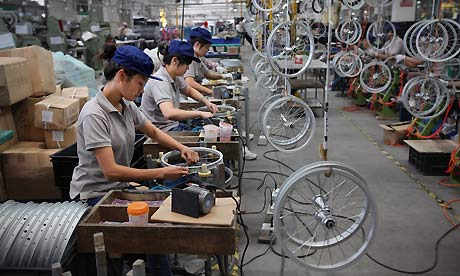The United States is the most technologically advanced nation in the history of the world. Aspiring scientists come here for training and research opportunities that far exceed those of any other country.
Yet we have a President who, essentially, says those scientists don't know what they're talking about. Of the recent report on global warming, which he claims to have read, he says, "I don't believe it."
I guess I shouldn't be surprised that my native country would elect such a person: After all, we have more people--and a larger percentage of our population--who deny evolution, insist that the Book of Genesis tells the literal truth of our origins, assert that the Earth is 6000 years old and even believe that there were dinosaurs on Noah's Ark--than any other "advanced" country!
I suppose that something else shouldn't surprise me: Wells Griffith, El Cheeto Grande's "adviser" on energy and climate, stood before an audience in Katowice, Poland and touted fossil fuels as the solution to our problems.
Now, Poland still burns a lot of coal, basically for the same reasons other countries use it: It's cheap, and they have a lot of it. But even there, as in other European countries, there is a consensus among leaders and everyday citizens that such a practice can't continue if, well, they want to have Katowice, Poland or this planet for themselves, their children or their grandchildren.
What also makes Griffith's pronouncement particularly tone-deaf (I guess I can't fault him for losing his hearing when he works for the shrillest President we've ever had!) is that in Katowice, a summit dubbed "Paris 2.0" was in session. And he audience he addressed was part of it.
That conference is a follow-up to the Paris Climate Agreement of three years ago. Our previous President, Barack Obama, was one of the leaders in the effort to get nations all over the world to agree to reduce their emissions dramatically. Most of the other signatories to the Paris agreement are still on board with it. But now we have a President who wants nothing more than to build a wall--as if it would keep out people who want to come to this country any more than it would keep countries and people--including citizens of the country he wants to seal off--from bringing environmentally sound practices into their homes, workplaces and other aspects of their lives.
Oh, and while he's cycling through advisers and cabinet ministers (Maybe that's why the unemployment rate is so low: Look at all the vacancies he's created!), Katowice appointed someone to an office that exists in cities like Amsterdam, Sydney and Sao Paolo. Meet Grzegorz Mikrut, the Bicycle Mayor of Katowice.
Fitting, isn't it?, that he should assume this post just as a representative of the US is channeling his boss's denial of science--and common sense.
Yet we have a President who, essentially, says those scientists don't know what they're talking about. Of the recent report on global warming, which he claims to have read, he says, "I don't believe it."
I guess I shouldn't be surprised that my native country would elect such a person: After all, we have more people--and a larger percentage of our population--who deny evolution, insist that the Book of Genesis tells the literal truth of our origins, assert that the Earth is 6000 years old and even believe that there were dinosaurs on Noah's Ark--than any other "advanced" country!
I suppose that something else shouldn't surprise me: Wells Griffith, El Cheeto Grande's "adviser" on energy and climate, stood before an audience in Katowice, Poland and touted fossil fuels as the solution to our problems.
Now, Poland still burns a lot of coal, basically for the same reasons other countries use it: It's cheap, and they have a lot of it. But even there, as in other European countries, there is a consensus among leaders and everyday citizens that such a practice can't continue if, well, they want to have Katowice, Poland or this planet for themselves, their children or their grandchildren.
What also makes Griffith's pronouncement particularly tone-deaf (I guess I can't fault him for losing his hearing when he works for the shrillest President we've ever had!) is that in Katowice, a summit dubbed "Paris 2.0" was in session. And he audience he addressed was part of it.
That conference is a follow-up to the Paris Climate Agreement of three years ago. Our previous President, Barack Obama, was one of the leaders in the effort to get nations all over the world to agree to reduce their emissions dramatically. Most of the other signatories to the Paris agreement are still on board with it. But now we have a President who wants nothing more than to build a wall--as if it would keep out people who want to come to this country any more than it would keep countries and people--including citizens of the country he wants to seal off--from bringing environmentally sound practices into their homes, workplaces and other aspects of their lives.
 |
| Grzegorz Mikrut |
Oh, and while he's cycling through advisers and cabinet ministers (Maybe that's why the unemployment rate is so low: Look at all the vacancies he's created!), Katowice appointed someone to an office that exists in cities like Amsterdam, Sydney and Sao Paolo. Meet Grzegorz Mikrut, the Bicycle Mayor of Katowice.
 |
| Anna Luten of Amsterdam, the world's first "Bicycle Mayor" |
Fitting, isn't it?, that he should assume this post just as a representative of the US is channeling his boss's denial of science--and common sense.


